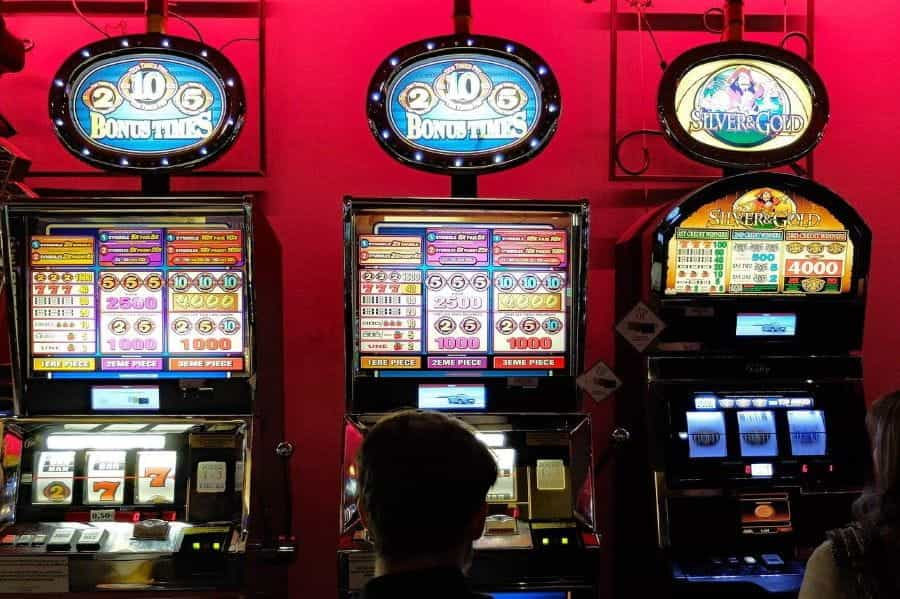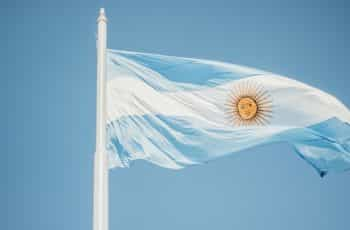Slot Marketing Ban Proposed in Finland
A slot marketing ban has been proposed in a report put together by the Finnish Ministry of Social Affairs alongside other recommendations. The report was written to outline potential changes to the gambling market that will help to promote responsible gambling in the country. These suggestions seek to better protect vulnerable consumers from harm caused by gambling.

Slot machines have been singled out as one of the main areas to improve in the Finnish gambling market. A proposed ban on marketing could improve responsible gambling in the future. ©djedj/Pixabay
This report has the potential to drastically change the landscape of the Finnish gambling market as it has also continued the pressure to allow licensing of private operators. This is a move that the country’s gambling monopoly holder, Veikkaus, is strongly in opposition to. The Ministry of Social Affairs has suggested that this could be a viable option to improve player protection.
The Ministry noted that policies like this would most likely be overlooked, however, amidst efforts being made in the country at present to force offshore operators out of the market at all costs.
Details of the Report
The report was published by the Harm Assessment Group, a body that was formed when the country’s 2001 Lottery Act was first implemented. The purpose of the group is to offer recommendations to the Finnish government that could help to mitigate the issues that are thrown up by problem gambling. The report was broken into two main sections.
The first part was authored by the group itself. Its main focus is on the measures that the government could take to improve the current restrictions that are in place on the market. The second section was authored by researchers based at the University of Helsinki. These researchers are called Tuulia Lerkkanen and Virve Marionneau and, in the section, they offered in-depth comparisons with other regulated gambling industries.
The main conclusions that were drawn in the report were that the widespread availability of slots, as well as the ease of access to such offerings, causes problems to Finnish citizens. Whilst these problems could potentially be mitigated by Veikkaus’ plans to reduce the number of slot machines that are present in the country, it was noted that Finland would still be the home to the second-highest number of slot machines per person in Europe.
Additionally, the responsible gambling efforts in the country are also significantly affected by the long opening hours of the physical gambling locations in Finland. At present, slots that are not situated in Veikkaus’ own venues are in operation round the clock. Even the venues managed by the operator are open until 3 AM, which poses a problem to responsible gambling efforts.
When such policies are contrasted with neighboring countries like Norway, it is clear that a significantly different approach is being taken. In Norway, slot machines are forced by law to be taken offline at midnight, regardless of where they are located. The Danish government also requires gambling venues to shut at this hour.
The issue of widespread accessibility is also rooted in the current policy that does not restrict where these machines can be located in Finland. As such, any licensed establishment in the country can host these machines. The report has suggested that all decentralized slot-machines should therefore be removed from Finland, or they should otherwise be solely limited to venues operated by Veikkaus.
One key change that could be made to reduce how accessible these machines are would be to introduce a blanket ban on advertising such products. This, alongside individual analyses of the risk profiles of every machine, would help to reduce the widespread use of fixed-odds machines by showing the potential negative consequences of play to all consumers.
The Online Market
The measures that could be implemented to limit the risk of online problem gambling have had to take into account offshore operators, according to the report’s authors. The report has suggested that the risks posed by foreign operators could be mitigated by some form of regulated licensing in Finland.
By offering licenses to more operators, it would be possible for the government in Finland to achieve much better oversight of the activity of gamblers in the country. Whilst this seems like a good idea in practice, it is unlikely to be adopted because of the current trend of blocking the access of Finnish consumers to these operators’ services.
Analysis of Other Markets
When looking at other markets, it was suggested that many of the measures introduced to improve responsible gambling included a centralized self-exclusion register. This would allow individuals that feel their gambling habits are negatively impacting their lives to sign up and be automatically blocked from reaching the services of operators in the country.
Such a step would be possible to implement and would be vastly helped by the current plans to introduce mandatory identification at all gambling terminals in Finland. Veikkaus is currently trialing such an approach for its slot machines in the country ahead of a planned widescale roll-out early in 2021.
The report did warn that players verifying their identities is not a way to effectively promote responsible gambling on its own. When such measures are implemented responsibly and fairly, however, they can be a useful tool to facilitate better control of gambling in a country. Such measures can help to monitor players blocking themselves or can be used to direct feedback to players about their gambling habits.
The Introduction of Mandatory Limits?
The final suggestion that was made by the report was to implement mandatory limits for Finnish consumers. These have been suggested to be a potentially effective measure to allow players to have greater control over the amount that they wager both in casinos and online.
There are currently limits being applied to online gambling in Finland. At present, there is a €500 deposit limit in place for online casino games in the country. This was introduced due to fears that the COVID-19 pandemic could result in more unsustainable gambling and applies to online slot games and bingo. This measure is temporary and is due to expire in 2021.
The report from the Ministry of Social Affairs has suggested that similar limits could actually prove to be a useful tool to promote responsible gambling for other verticals, however. By expanding this approach to cover other forms of gambling, players could become more aware of their habits and how to control them whilst still being able to gamble at a reasonable level.
This report has been put together as the government in Finland works to develop the Lotteries Act in the country. These developments will make identification verification mandatory for all slot machines in the country by 2023. Whilst this is seen as a positive step by many, there have been calls from Veikkaus to bring it into effect sooner, hence the trial that is occurring at present.
The operator has already begun its investigation into how to best implement an account-linked slot gaming experience for its many machines located across the country. There should be verification at all of its machines by the end of January in the new year, and the company wishes to push it further by introducing mandatory ID checks at all of its gambling locations in Finland.
The operator has had a large amount of pressure applied to it to make positive steps to promote healthy gambling due to some high-profile calls for the Finnish government to end its gambling monopoly. As such, it has been very publicly pursuing a responsible gambling strategy responsible gambling strategy that includes measures like age verification.
The operator has also committed to bring in a more responsible marketing strategy for its services that will affect the volume of adverts it commissions in Finland, as well as the content that is included in them. It is not yet known what the operators’ response will be to the suggestion of a blanket ban of advertising slot-machines, however.



